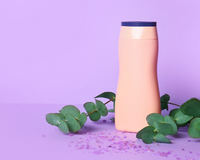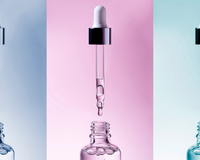Vitamin C anti aging aids in tissue regeneration boosts our immune system and is required for many of our systems' biochemical activities that keep us healthy: a deficiency in Vitamin C is known to induce scurvy, one of the first nutritional diseases to be recognized in sailors. It is an anti-oxidant as well. Your favorite skincare products have likely begun to promote vitamins as well as creams to hydrate, smooth wrinkles, and refresh the skin, as you've definitely observed. So, how efficient are these skin supplements in the battle against aging?
To stay healthy, the skin needs the correct combination of nutrients. However, I must admit that I have some reservations about the vitamin industry. The majority of the time, what's on the label isn't in the pill. Unfortunately, sanctions and inspections for pharmaceuticals do not apply to vitamins. Many goods are also released with insufficient scientific research. But this isn't true for all brands, and it doesn't indicate that vitamins aren't effective. Just be sure the product you're going to use is safe, and stick to the brands your doctor suggests. Vitamin C (also known as ascorbic acid and L-ascorbic acid, despite the fact that these are two different types of vitamin) is essential for our overall well-being and skin health. If you're dealing with hyperpigmentation, skin dullness, black patches, or sagging skin, you're definitely seeking the best vitamin C serum.
Vitamin C Anti Aging
Anti-aging vitamin C products antioxidants may aid in the protection against the damaging effects of UV radiation. That isn't to suggest that you can't use a vitamin C skin serum instead of sunscreen. It cannot be used in place of SPF since it does not absorb UVA or UVB rays. However, some research suggests that if UV rays do penetrate your skin, vitamin C may help to minimize the damage. Hyperpigmentation is a skin disorder in which certain parts of your skin are darker than the rest.
Hyperpigmented patches can be brightened using vitamin C-based skincare. In one study, vitamin C applied to the skin for 16 weeks significantly decreased these spots. However, experts say that further study is needed to confirm the usefulness of vitamin C lotions. Vitamin C is a potent anti-aging component included in a variety of anti-aging treatments. When used for at least 12 weeks, it has been shown in several trials to decrease the appearance of wrinkles.
A vitamin-rich, well-balanced diet may also be useful. People who take more vitamin C have fewer wrinkles, according to research. Citrus fruits aren't the only ones that have been harmed. It's also abundant in broccoli, red peppers, and spinach.
The backbone of every decent skincare routine is cleansing and moisturizing, but a fantastic one starts with the use of a vitamin C serum. The well-known antioxidant protects skin from UV exposure, promotes collagen synthesis, and lifts dark spots away, exposing a healthy glow. Vitamin C derivatives in skincare are notoriously picky, and not just any serum will give you the benefits you're looking for.
Benefits of Using Vitamin C Anti Aging
This protein is found in your skin naturally and helps to prevent sagging. Your body's collagen production, on the other hand, declines as you get older. Vitamin C promotes the production of new collagen in the skin when applied topically. It also helps to preserve the collagen you already have by avoiding damage to the important protein. Wound healing can aid by vitamin C. You can take supplements, eat more of the vitamin, or apply it to your skin to obtain more of it. All of these things help to cure open wounds, especially in those who don't get enough of the substance. The vitamin aids in the production of collagen, which is required to heal damage such as this.
Applying vitamin C gel to the skin decreased the visibility of surgical scars in one study. After their sutures were able to be remove, half of the 80 participants in the research put the vitamin-infused silicon gel to their wounds every day for six months. Following that, their scars were less visible than those of those who had not used the product.
This kind of topical vitamin C is the most active and well-studied. Other types of ascorbyl, such as magnesium ascorbyl phosphate or ascorbyl palmitate, appear in skincare products from time to time. Make sure you choose the one with the greatest proof by looking at the label. Look for serums that have a vitamin C concentration of 10% to 20%.
Vitamin C-Based Anti Aging Skin Care Products
Lower than that may not provide the advertised advantages, while greater amounts may irritate your skin without adding any value.
After washing your face, use vitamin C cream or serum before applying moisturizer. It may irritate or harm your skin at first, but this should go away if you keep using it. Test a new product on a small part of your face before applying it to your full face. Take it carefully if you're using a vitamin C serum alongside other acidic skincare treatments like retinol. When used simultaneously, they may irritate your skin. Instead of utilizing them on the same day, consider using them on different days. Light and air may both harm the components in vitamin C serum, so keep it away from them.
Vitamin C is becoming more widely used in topical (or externally applied) skincare treatments, where it can make skin seem younger and more vibrant. One of the benefits of using a Vitamin C-enriched skincare product is that you may apply it exactly where it needs. Some types of vitamin C, such as L-ascorbic acid, are more active than others and have investigated and validated as a skincare ingredient more thoroughly.
To make a difference in skin cells, research shows that a product must contain at least 8% Vitamin C. Moreover 20% alcohol in a formulation may not increase effectiveness and may irritate certain persons. Because pure Vitamin C degrades when exposed to air, it best uses in a product where the delivery mechanism allows it to blend right in with the rest of the ingredients.









